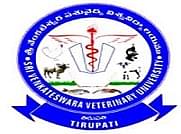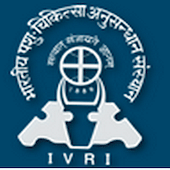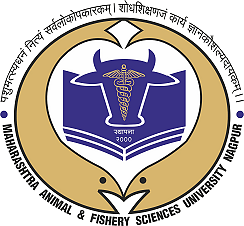Ph.D. Zoology College: 10 Question Answer Blog
1. What is Ph.D. in Zoology?
A Ph.D. in Zoology Manipur is an
advanced academic degree focusing on the study of animals, their behaviors,
genetics, and interactions with ecosystems. It involves extensive research and
contributes to the understanding of biodiversity and conservation efforts.
Pursuing a Ph.D. in Zoology allows students to specialize in various fields
such as marine biology, wildlife conservation, and evolutionary biology,
providing a strong foundation for a career in academia, research, or applied
science.
2. What are the admission
requirements for a Ph.D. in Zoology?
Admission requirements for a Ph.D. in
Zoology typically include a master's degree in Zoology or a related field, a
minimum GPA, letters of recommendation, a statement of purpose, and sometimes
GRE scores. Candidates should also have a strong background in biological
sciences and research experience. Some programs may require candidates to have
published research papers or relevant work experience in the field of zoology.
3. What is the application
process for a Ph.D. in Zoology?
The application process for Ph.D. in Zoology college involves
submitting an online application form along with required documents such as
transcripts, letters of recommendation, a statement of purpose, and a research
proposal. Applicants may also need to appear for an interview or entrance
examination. It's essential to check the specific requirements of each college
or university, as they can vary. Early preparation and timely submission of
application materials are crucial for a successful application.
4. What is the typical
duration of a Ph.D. in Zoology program?
The typical duration of a Ph.D. in Zoology
program is 3 to 5 years, depending on the research topic and the student's
progress. This period includes coursework, comprehensive exams, and conducting
original research leading to a dissertation. Some programs may extend beyond
five years, particularly if the research involves extensive fieldwork or
complex experimental designs.
5. What kind of research
opportunities are available in a Ph.D. in Zoology program?
Ph.D. in Zoology programs offer a wide
range of research opportunities in areas such as animal behavior, ecology,
evolutionary biology, genetics, marine biology, and wildlife conservation.
Students can work on projects related to the study of specific species, their
habitats, and interactions with the environment. Collaborations with research
institutions, government agencies, and conservation organizations provide
additional opportunities for fieldwork and applied research.
6. What career prospects are
available after completing a Ph.D. in Zoology?
After completing a Ph.D. in Zoology,
graduates can pursue careers in academia, research, wildlife conservation,
environmental consulting, and governmental and non-governmental organizations.
They can work as university professors, research scientists, wildlife
biologists, ecologists, or conservationists. The advanced knowledge and
research skills acquired during the Ph.D. program also open opportunities in
the biotechnology and pharmaceutical industries.
7. How do you choose the best
Ph.D. Zoology college?
Choosing the best Ph.D. Zoology college
involves considering factors such as the faculty's expertise, research
facilities, funding opportunities, and the college's reputation in the field of
zoology. Prospective students should review the research interests and
publications of potential advisors, the availability of research grants, and
the college's partnerships with research institutions and conservation
organizations. Visiting the campus and talking to current students can also
provide valuable insights.
8. What is the importance of
publishing research during a Ph.D. in Zoology?
Publishing research during best Ph.D. in Zoology Manipur is
crucial for establishing a scientific reputation and contributing to the
field's body of knowledge. It allows students to share their findings with the
scientific community, receive feedback, and build a network of professional
contacts. Published research also enhances a student's CV, making them more
competitive for academic positions, research grants, and other career
opportunities.
9. What financial aid options
are available for Ph.D. in Zoology students?
Financial aid options for Ph.D. in Zoology
students include research assistantships, teaching assistantships,
scholarships, fellowships, and grants. Many universities offer funding packages
that cover tuition and provide a stipend for living expenses. External funding
sources, such as government agencies and private foundations, also offer
scholarships and research grants specifically for zoology students. It's
essential to explore all available options and apply early for financial aid.
10. How do you prepare for a
Ph.D. in Zoology program?
Preparing for a Ph.D. in Zoology program
involves gaining a solid foundation in biological sciences through coursework
and research experience. Prospective students should focus on developing skills
in research methodology, data analysis, and scientific writing. Building
relationships with professors and researchers in the field, attending
conferences, and staying updated on current research trends are also essential
steps. Preparing a well-defined research proposal and ensuring a strong
academic record will enhance the chances of admission to a Ph.D. program.
In conclusion, a Ph.D. in Zoology offers
extensive research opportunities and a pathway to a rewarding career in various
scientific and conservation fields. Selecting the best Ph.D. zoology college,
understanding the admission
process, and securing financial aid are crucial steps in this
academic journey. With dedication and hard work, students can make significant
contributions to the field of zoology and beyond.












